🔒Top 9 Cryptocurrency Hardware Wallets of 2025 🔒
After seeing the Bybit team hacked for $1.4B, Radiant Capital hacked for $50M, and many other teams hacked due to not verifying signed data, I wanted to find out:
Which wallet does it best? 👇
We review all 9 in this thread!
After seeing the Bybit team hacked for $1.4B, Radiant Capital hacked for $50M, and many other teams hacked due to not verifying signed data, I wanted to find out:
Which wallet does it best? 👇
We review all 9 in this thread!

So I spent over $1,000 to buy fresh new hardware wallets to figure out which wallet is the best for BOTH:
- Technical users
- Non-technical
Specifically, I asked, "Would I recommend this wallet to @benbybit?"
You can view this on YouTube:
- Technical users
- Non-technical
Specifically, I asked, "Would I recommend this wallet to @benbybit?"
You can view this on YouTube:
All hardware wallets should do 1 thing:
"Protect your private key"
Other than that, we wanted to know: which wallets help you verify your data the best?
I also wrote a blog if you would prefer that:
medium.com/@patrickalphac…
"Protect your private key"
Other than that, we wanted to know: which wallets help you verify your data the best?
I also wrote a blog if you would prefer that:
medium.com/@patrickalphac…
Methodology
To test these wallets, we connected them to the @safe UI through @MetaMask and both:
1. Sent a transaction
2. Signed EIP-712 data
The wallets MUST show us some data, and ideally also decode some data.
To test these wallets, we connected them to the @safe UI through @MetaMask and both:
1. Sent a transaction
2. Signed EIP-712 data
The wallets MUST show us some data, and ideally also decode some data.
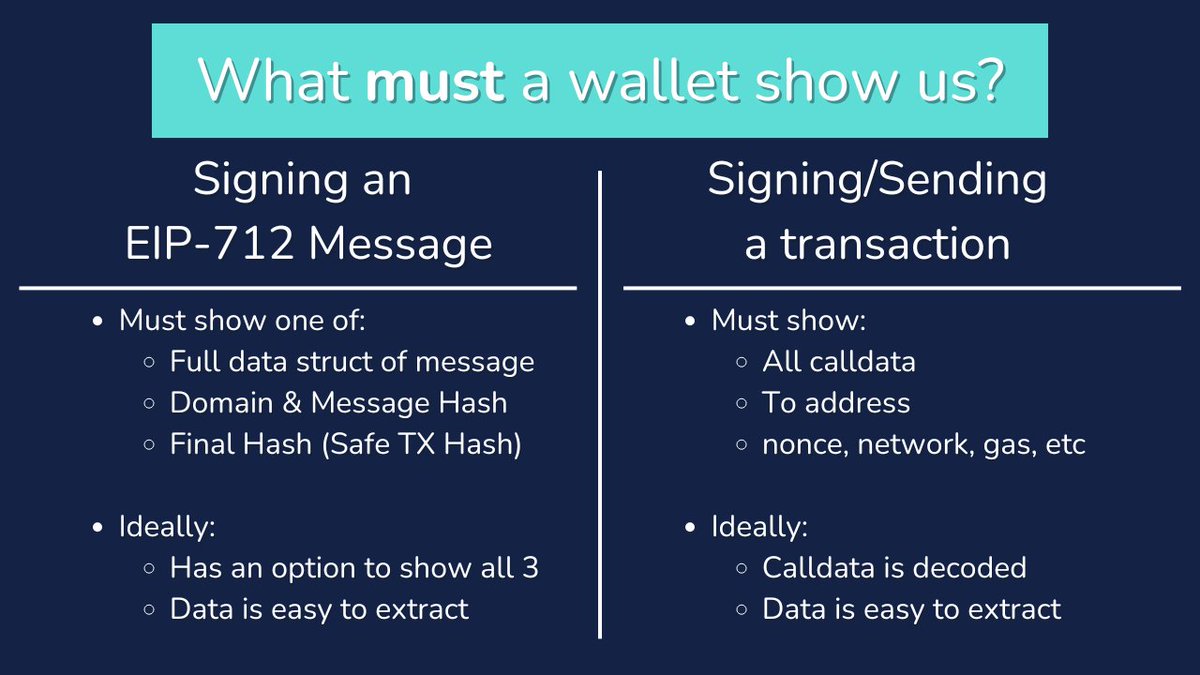
So we tested how easy it was for us to get/verify this data, AND we also checked other features like:
- Secure Element
- Open sourced
- User Experience
- etc
Which we combined together in a simple image with the following information, along with a rating.
- Secure Element
- Open sourced
- User Experience
- etc
Which we combined together in a simple image with the following information, along with a rating.
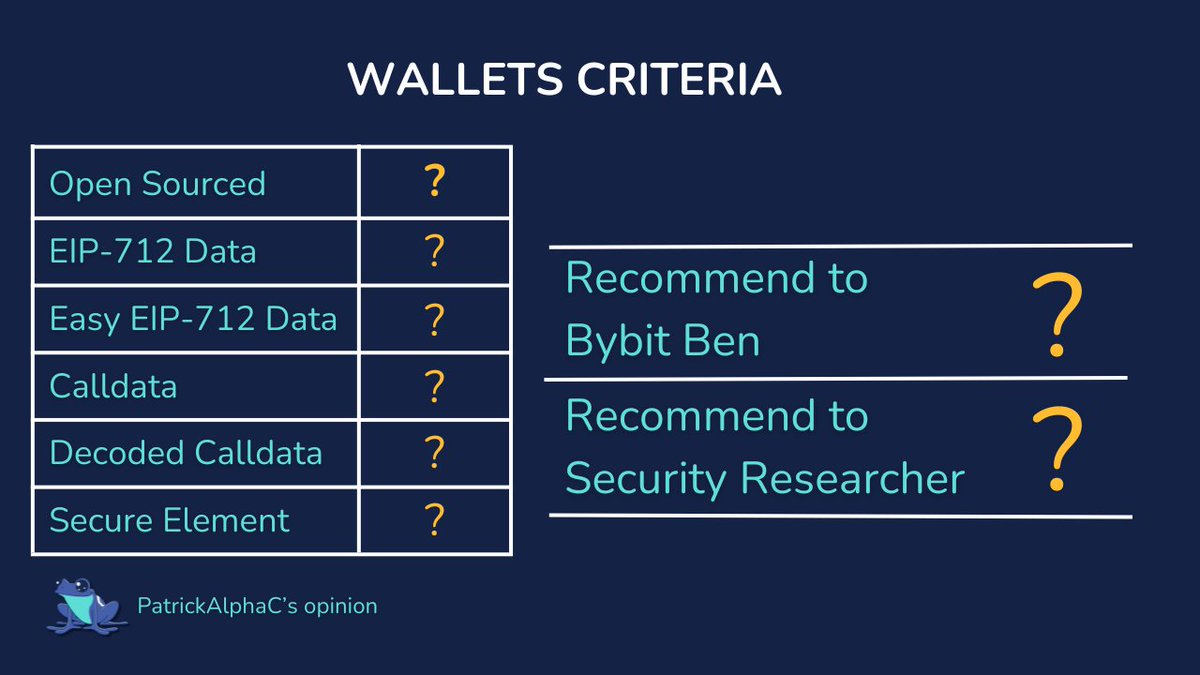
At the end, I will give my final recommendations. You can refer to the image at the start of this thread if you want to see more information on what went into my testing.
Let's get started.
Let's get started.
The @Tangem wallet was very convenient but didn't show a lot of crucial information (calldata), and was closed-sourced.
I wouldn't put a lot of money in this because the wallet doesn't show any calldata! I could see it being nice as just a fast wallet of the future though.
I wouldn't put a lot of money in this because the wallet doesn't show any calldata! I could see it being nice as just a fast wallet of the future though.
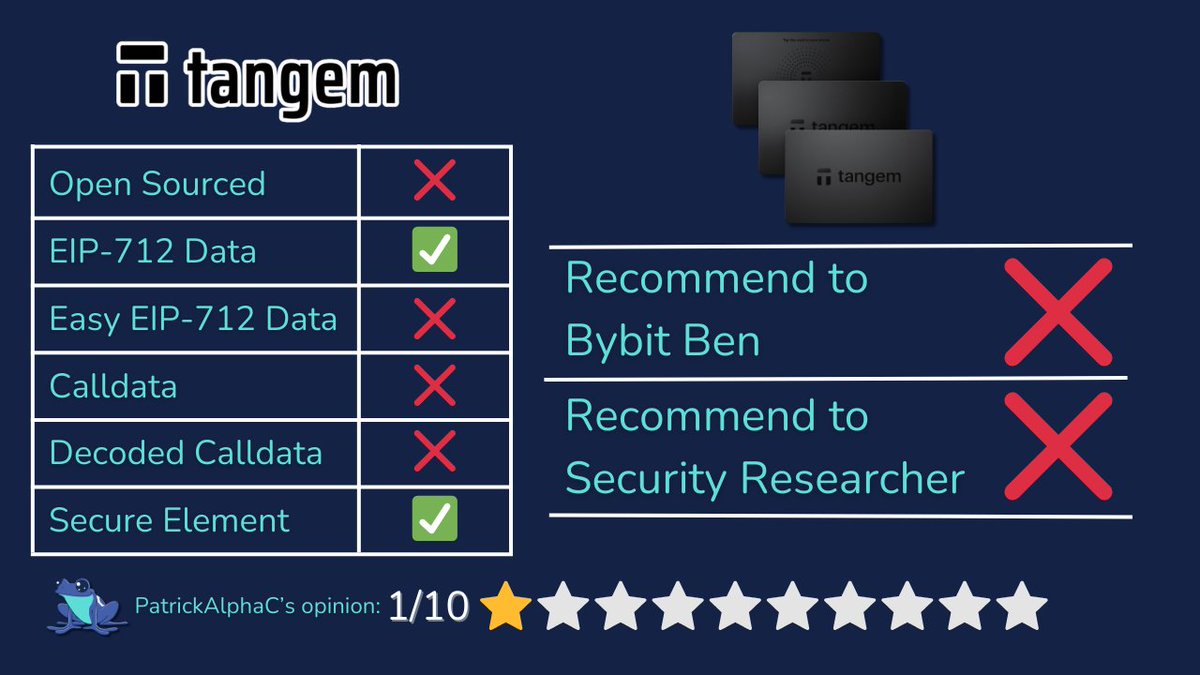
The @CypherockWallet was a step up being open sourced, and having an actual hardware device. It was a little less convenient, but it shared the same issue as the Tangem, it didn't show any calldata on a transaction! 
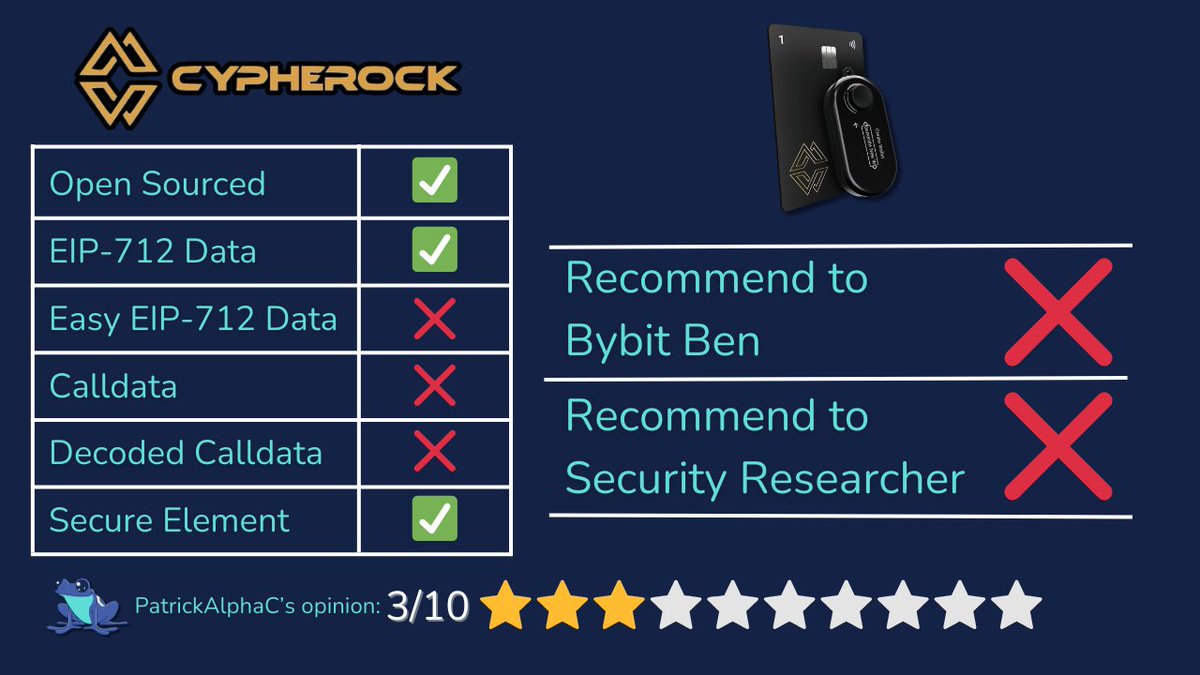
The @KeystoneWallet Pro 3 was ALMOST my favorite wallet, and then it fell short at the finish line.
Open sourced, and bragged about how it decodes calldata. This would have been good, but the decoding ending up truncating calldata in some instances, that's actually much worse!
Open sourced, and bragged about how it decodes calldata. This would have been good, but the decoding ending up truncating calldata in some instances, that's actually much worse!
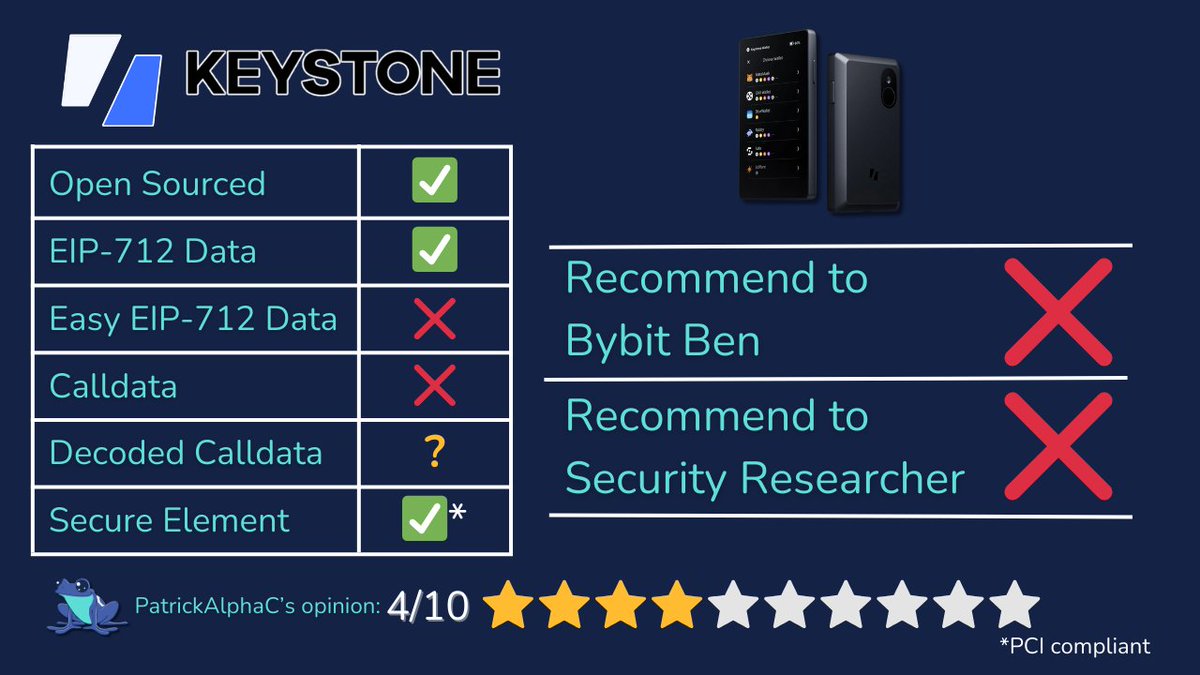
The @Trezor Model T is the first "solid" wallet on our list. Open-sourced, shows all calldata, shows all signature data, the only issue is that it doesn't have a secure element. 
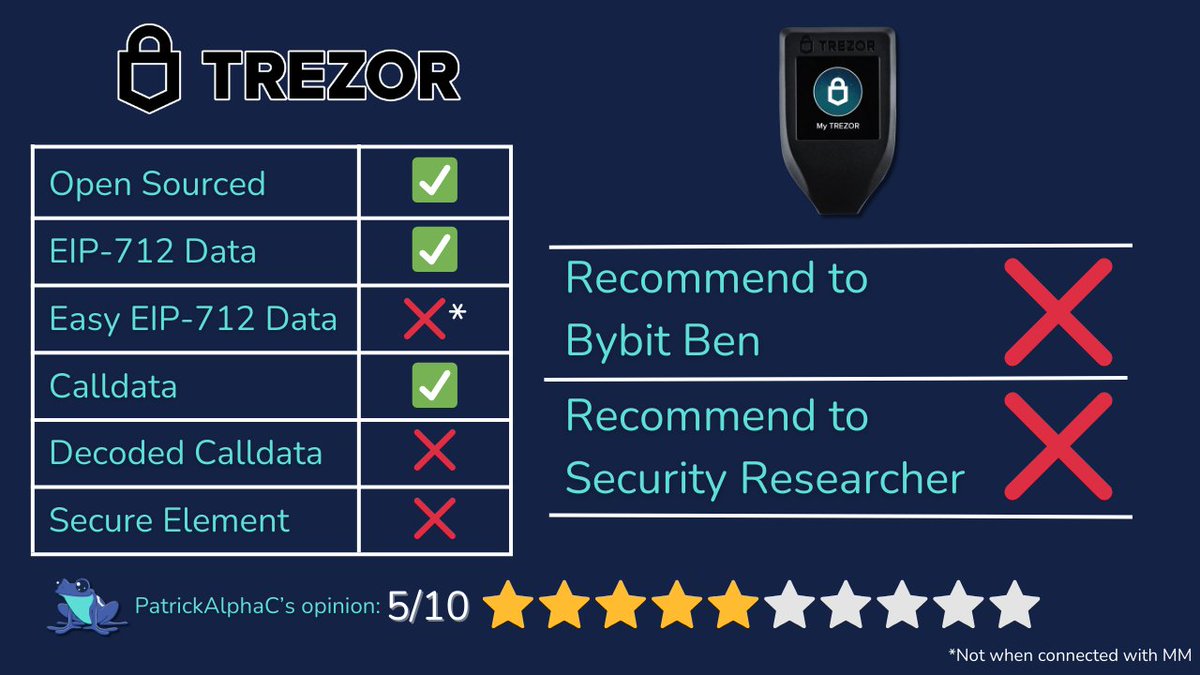
The @Trezor Safe 5 is essentially the same, just with a secure element.
This wallet could very easily be the best with a few firmware upgrades. It would be nice to be able to get calldata off the device easier, a better UI, and show message & domain hashes on EIP-712 sigs.
This wallet could very easily be the best with a few firmware upgrades. It would be nice to be able to get calldata off the device easier, a better UI, and show message & domain hashes on EIP-712 sigs.
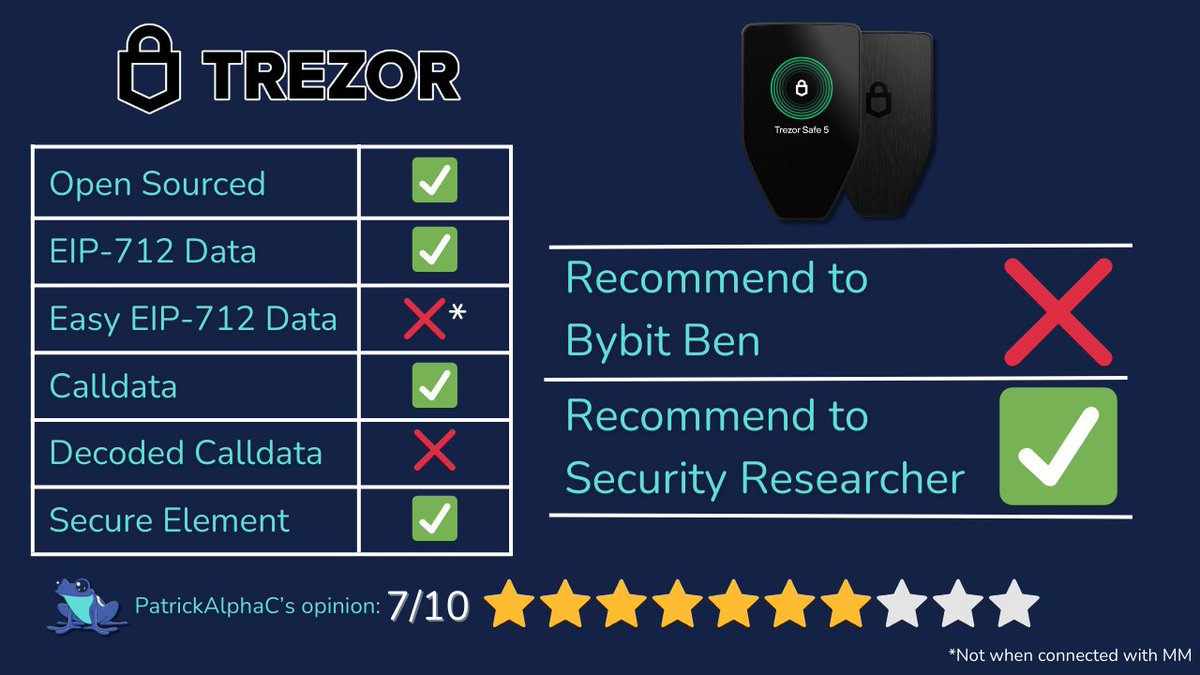
Sadly, we go back to closed-sourced with the @Ledger Nano X. But the wallet, like the Trezor Model T, is still very "solid".
It just shows data in a really bizarre format, and the two button interface is quite clunky.
Just use the Ledger Flex if you want a Ledger.
It just shows data in a really bizarre format, and the two button interface is quite clunky.
Just use the Ledger Flex if you want a Ledger.
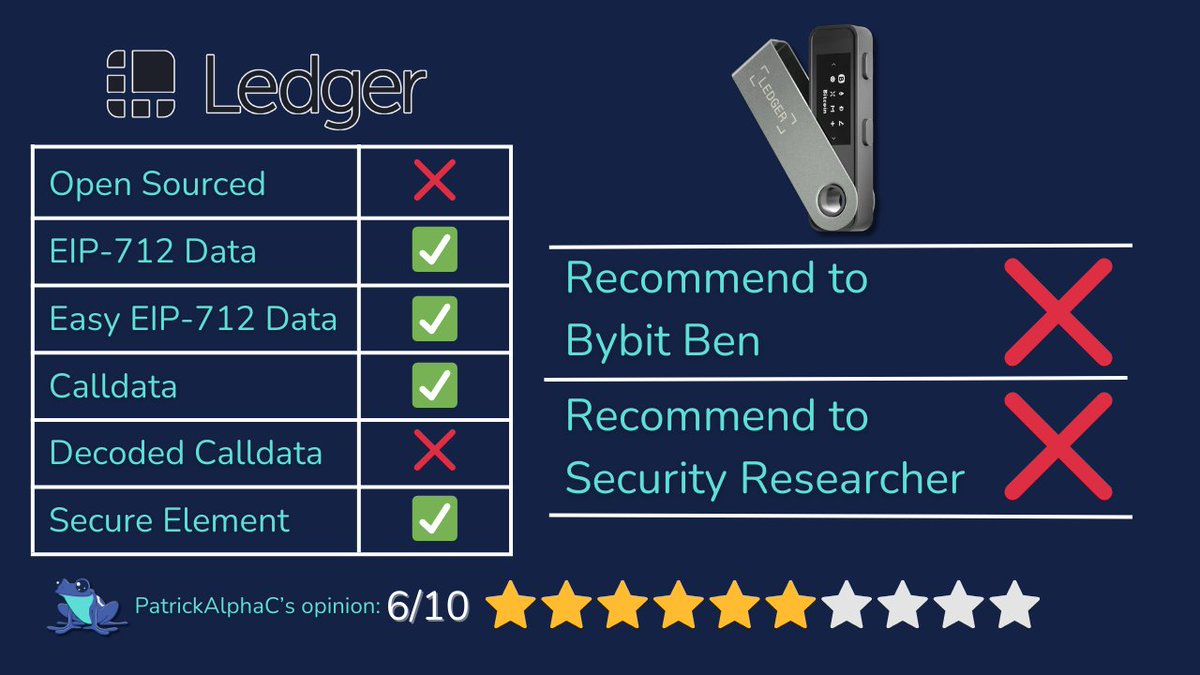
The @Ledger Flex and the Nano X BOTH have the amazing feature of being the only two wallets on this list that show EIP-712 data in a preferred format.
The touchscreen is outstanding, my favorite of all wallets. It just has bizarre formats and settings names like the nano.
The touchscreen is outstanding, my favorite of all wallets. It just has bizarre formats and settings names like the nano.
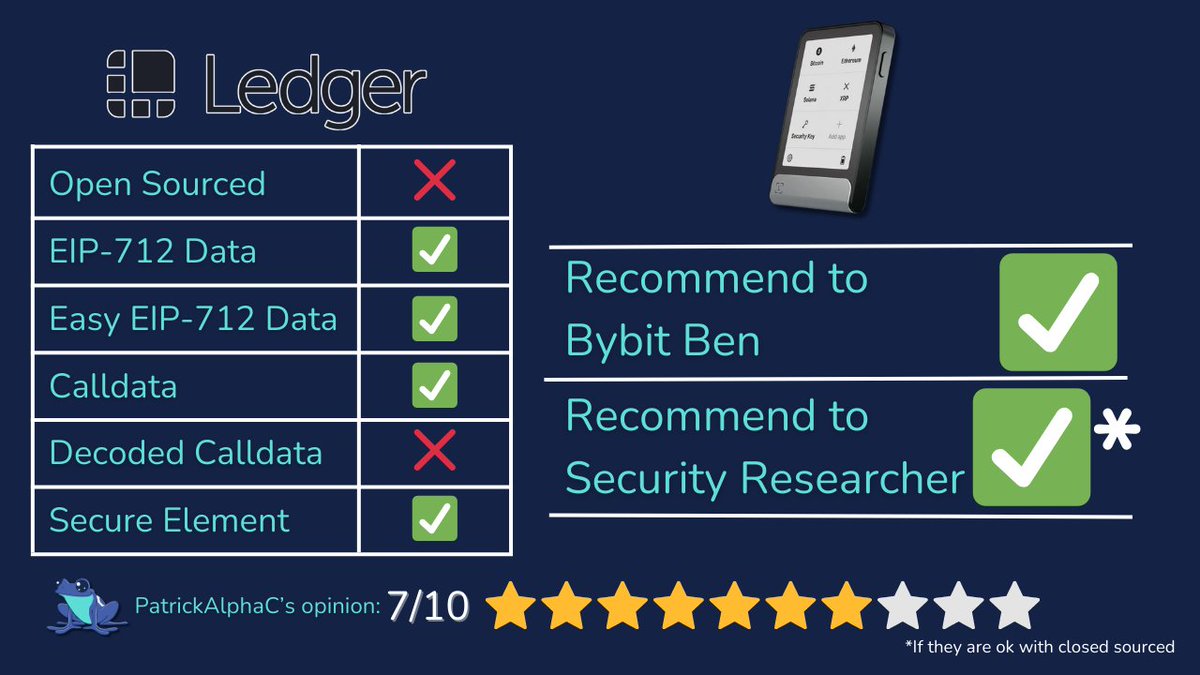
The @OneKeyHQ wallet was also close to being my favorite, but it failed the reproducibility tests on @WalletScrutiny.
Other than that, UI was great, showed enough data, very solid wallet.
Other than that, UI was great, showed enough data, very solid wallet.
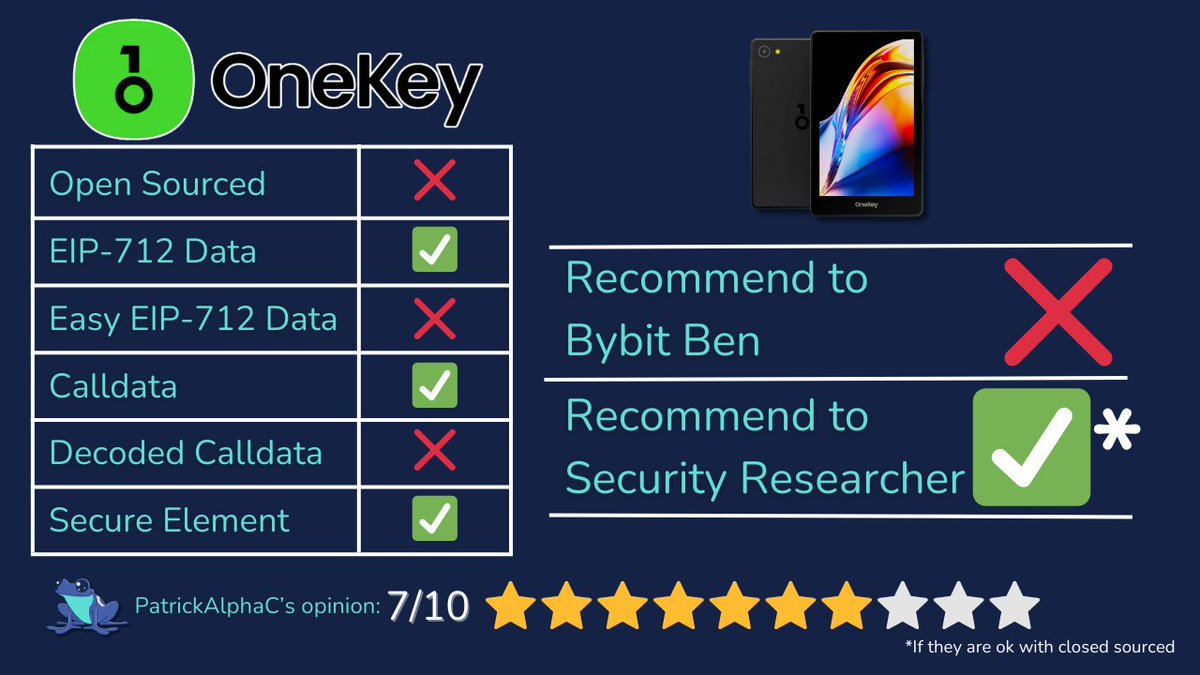
tbh, I didn't want to like this wallet because of it's weirdness, but the @gridplus had the AMAZING unique feature of decoding both calldata and nested calldata, which was outstanding.
Sadly closed-sourced, and I wish I could get the raw calldata & Safe TX Hash on signatures.
Sadly closed-sourced, and I wish I could get the raw calldata & Safe TX Hash on signatures.
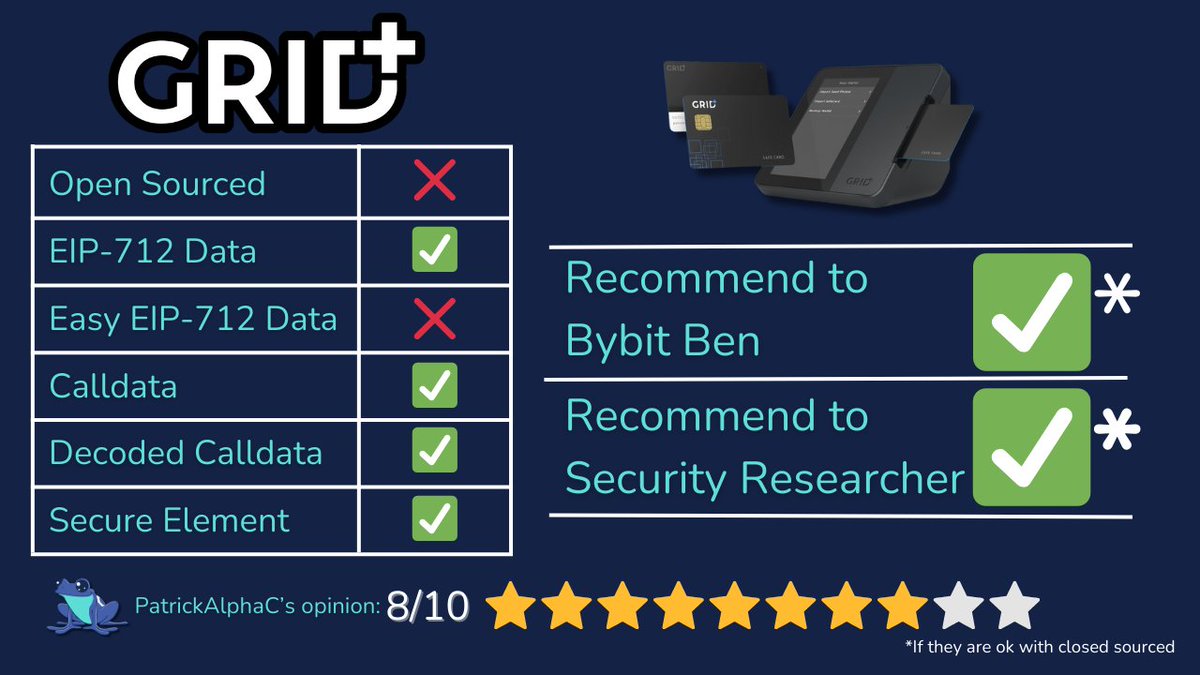
There is never a "right" choice when it comes to these, as every wallet has it's trade offs.
But as of today, my top picks would be the following based on your needs.
But as of today, my top picks would be the following based on your needs.
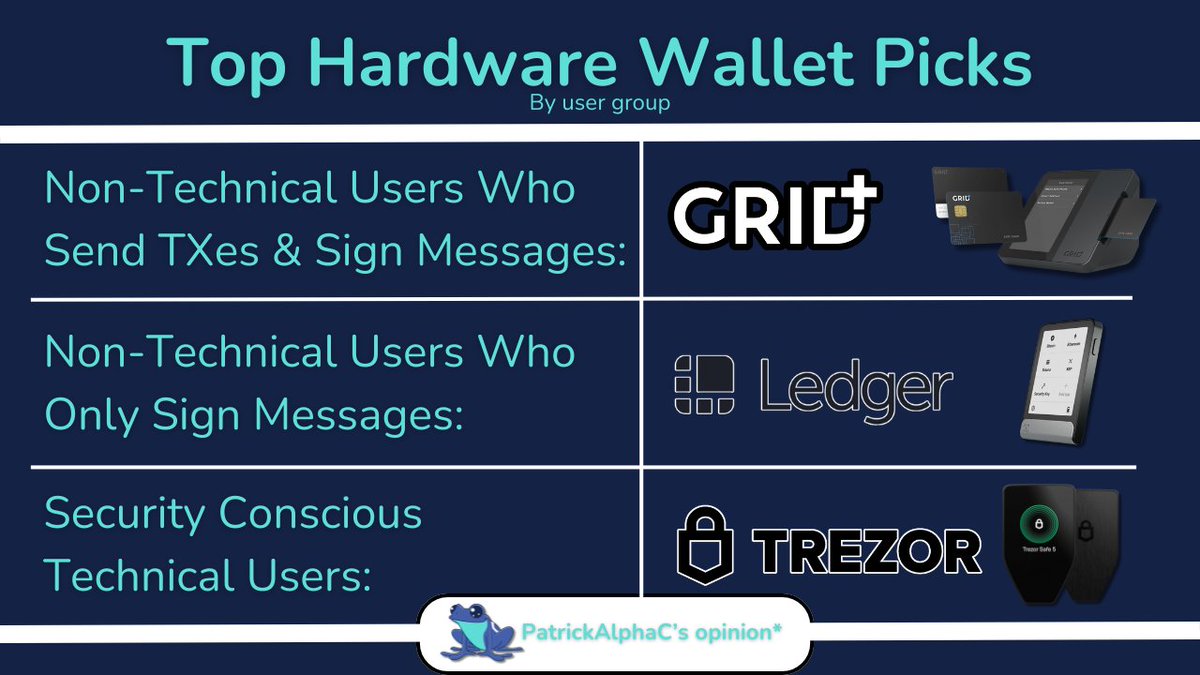
If you think I got something wrong, let me know!
Otherwise, please share my list so others can be informed when buying a hardware wallet!
Shoutouts to @pcaversaccio, @officer_cia, @0xMidnight, and @WalletScrutiny for their content on wallets that helped me!
Otherwise, please share my list so others can be informed when buying a hardware wallet!
Shoutouts to @pcaversaccio, @officer_cia, @0xMidnight, and @WalletScrutiny for their content on wallets that helped me!
• • •
Missing some Tweet in this thread? You can try to
force a refresh







